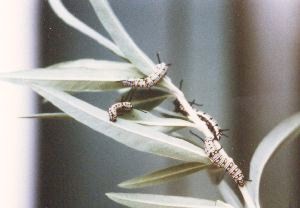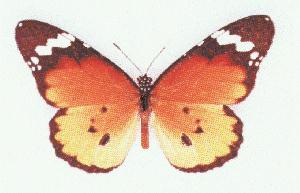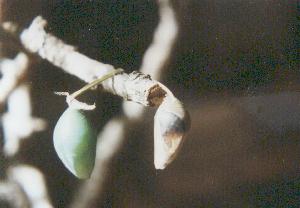 |
|
|
Farm Operation
A project has been started amongst the
local community where previously disadvantaged members of the
community produce pupae at home and then sell them to the main butterfly
farm. These home producers are small farms in themselves. To put it into
perspective these butterfly farmers are in fact a small entity which is
preserved for the captive breeding of a few of the world's 20,000 butterfly
species. The farmers collect the pinhead sized eggs from the leaves where
they are laid. The eggs are then cared for until they hatch into
caterpillars, which are fed host plant cuttings. When the caterpillars
change into chrysalises, the farmers collect them and sell the to the Main
Impenjati Butterfly Farm. Some are kept back to complete the cycle
in captivity and some for release back into the wild. Butterfly farms can
create employment in areas where opportunities and income are scarce. It's
one of the few industries where people living in and around natural area's
can earn as much as they would in less environmentally benign ways. This
good money entices farmers to preserve the existing forests, or to re-grow
trees and indigenous plants on degraded land. Butterfly farming can be
done at home with a small investment in time, money and habitat. While
it will not directly reduce the illegal tree cutting common to the natural
forests, butterfly farmers and other locals tended to view trees less as
fodder for fires, and more as a valuable standing resource. It's a participatory
process that gets everyone in a wooded area onboard to create community
jobs while sustainably managing the natural forests. Impenjati Butterfly
Farm teaches the local people butterfly farming methods in order that they
can set up their own little farms and make an income from them.
 |
|
|
 |
|
|
 |
|
|
|
Impenjati Butterfly Farm
Telephone :- +27 082 293 6244
e-mail :-hcnhm"at"webmail.co.za (Please replace "at" with @ when sending e-mail) |